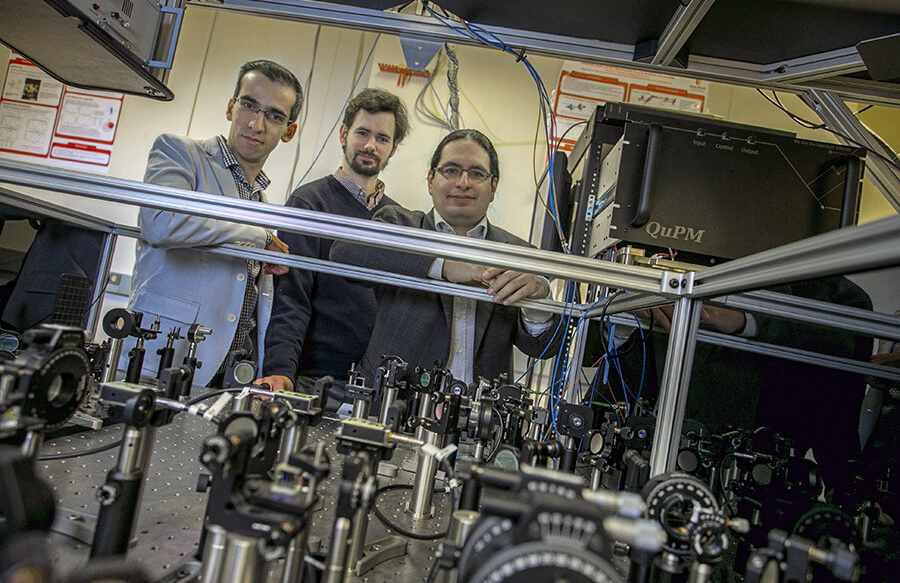Quantum communications startup Qunnect lands $8M led by Airbus Ventures to usher in the era of quantum internet

The groundwork for today’s internet was laid in 1973 by the U.S. Defense Advanced Research Projects Agency (DARPA). At the time, the goal was to develop communication protocols that would allow networked computers to communicate transparently across multiple, linked packet networks.
But a lot has changed in the last five years with advancements in quantum computing which harness the behavior of particles to make calculations in fundamentally new ways and usher in a new era of the quantum internet. One tech startup at the forefront of this technology is Qunnect, a New York-based quantum communication startup that is building hardware to transform telecommunications infrastructure into scalable quantum networks. Qunnect’s technology has the potential to make data transmission faster and more secure.
In May, Qunnect was awarded $1.85 million from the US Department of Energy to support the commercialization of the core technologies needed for long-distance quantum-secure communication.
Today, Qunnect announced it has raised $8 million in a funding round led by Airbus Ventures and launched a test project in New York. The funding proceeds will be used to boost manufacturing and develop a research and development platform, the company said in a statement.
The United States is one of the many countries that are investing heavily in this technology. China and the EU are also backing similar efforts.
Quantum networks form an important element of quantum computing and quantum communication systems. Quantum networks facilitate the transmission of information in the form of quantum bits, also called qubits, between physically separated quantum processors.
A quantum internet supports many applications, which derive their power from the fact that by creating quantum entangled qubits, information can be transmitted between the remote quantum processors. The Quantum internet could also pave the ways to reinvent fields including cybersecurity and material science. “A quantum internet will be the platform of a quantum ecosystem, where computers, networks, and sensors exchange information in a fundamentally new manner where sensing, communication, and computing literally work together as one entity, ” explains David Awschalom, a quantum engineer at the University of Chicago.
Founded in 2017 by co-founder Mehdi Namazi, Qunnect is aiming to commercialize the core technologies needed for long-distance quantum-secure communication with the foundational technology licensed from the Research Foundation of the State University of New York. By utilizing the same atomic foundation, Qunnect assures high compatibility between devices while maintaining optimal fiber transmission.
The company has also received grants and research support from the US Department of Energy, the US Air Force, and the National Science Foundation, as well as mentorship from the Clean Energy Business Incubator Program (NYSERDA) at Stony Brook University, the Luminate Accelerator (NextCorps), and Activate Boston.
In a statement, Namazi said the company’s technology works in ambient temperatures with existing telecommunications network infrastructure and does not require the very cold temperatures typically used in other quantum systems.
He added that while network security is currently one of the technology’s main applications, the company’s technology could eventually “have many different entanglement sources and make them talk to each other to increase the distance beyond what would be possible otherwise.”

